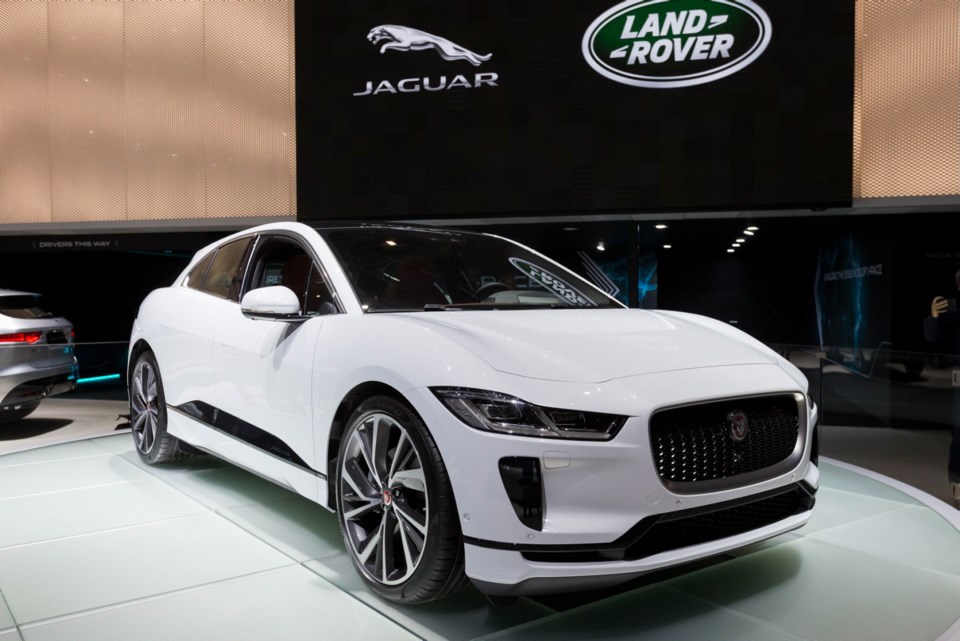Mazda’s next-generation SkyActiv internal-combustion engine will be clean-burning and efficient enough to compete with electric motors, in terms of environmental impact, the company’s officer in charge of powertrains said. Mitsuo Hitomi told business publication Automotive News that the SkyActiv-3 engine will have about 27 per cent greater thermal efficiency than the upcoming SkyActiv-X iteration that’s also still under development. Mazda began the SkyActiv program in 2007 and said it lowered consumption by 30 per cent without building hybrid or gasoline-electric technology. SkyActiv-X is the next stage in optimizing internal combustion and uses engine compression for ignition instead spark plugs. “Mazda says it will improve efficiency 20 to 30 per cent over SkyActiv-G, itself a 35-45 per cent improvement over a pre-SkyActiv Mazda engine, ” Automotive News reported.
Jaguar I-Pace tested in the Arctic
Promising “an electric performance SUV like no other,” Jaguar’s all-electric I-Pace will deliver both rapid charging and performance when it goes on sale in the United Kingdom in March. That means 45-minute recharge times with sports-car like performance and utility-vehicle practicality. The I-Pace, premièring this week at the Geneva Motor Show in Switzerland, will be billed as “the perfect everyday car,” the company said in a pre-show statement, “whether on the school run, daily commute or coping with sub-zero temperatures.” The vehicle was tested across extremes of terrain at Jaguar Land Rover's cold-weather test facility in Arjeplog, Sweden, at temperatures as low as -40 C.
Pacifica Hybrid minivan will be Waymo’s main mule
Fiat Chrysler Automobiles (FCA) will deliver “thousands” of its new Chrysler Pacifica Hybrid minivans to Waymo, the autonomous-vehicle testing company, in support of launching the world’s first driverless ride-hailing service. Vehicle delivery begins late in 2018, each one with autonomous technologies developed by Google. Working together on this first-of-its-kind collaboration, Waymo and FCA engineers designed an autonomous-vehicle program built on a mass-production platform. To move quickly in autonomy, “it is essential to partner with like-minded technology leaders,” FCA CEO Sergio Marchionne said. Waymo is set to open its ride-hailing service to the public beginning in Phoenix, Arizona, this year. Waymo has tested its technology in 25 cities across the United States.
Colorado introduces pro-EV adoption policy
The state of Colorado, already a U.S. leader in the development of electric-vehicle infrastructure and policies, has unveiled the Colorado Electric Vehicle Plan, a “roadmap” to build out a state-wide fast-charging network and to encourage the adoption of electric vehicles. Currently, Colorado ranks eighth in the United States in EV market share, and seventh for the number of EVs already in service per capita, according to Charged Electric Vehicles magazine. Public charging is a priority of the plan, especially fast-charging along major roads, said Gov. John Hickenlooper. The new plan “serves as a roadmap to build out a fast-charging network, giving Coloradans the ability to travel anywhere in the state in an EV,” Hickenlooper said.
An electric Harley? Company says yes
Harley-Davidson, the American stalwart of two-wheel internal-combustion motoring, plans to sell an electric motorcycle. Dubbed Project LiveWire, “it's an active project we’re preparing to bring to market within 18 months,” said company CEO Matt Levatich. Research garnered from 12,000 people who rode the LiveWire prototype will be used to form the company's marketing campaign.



